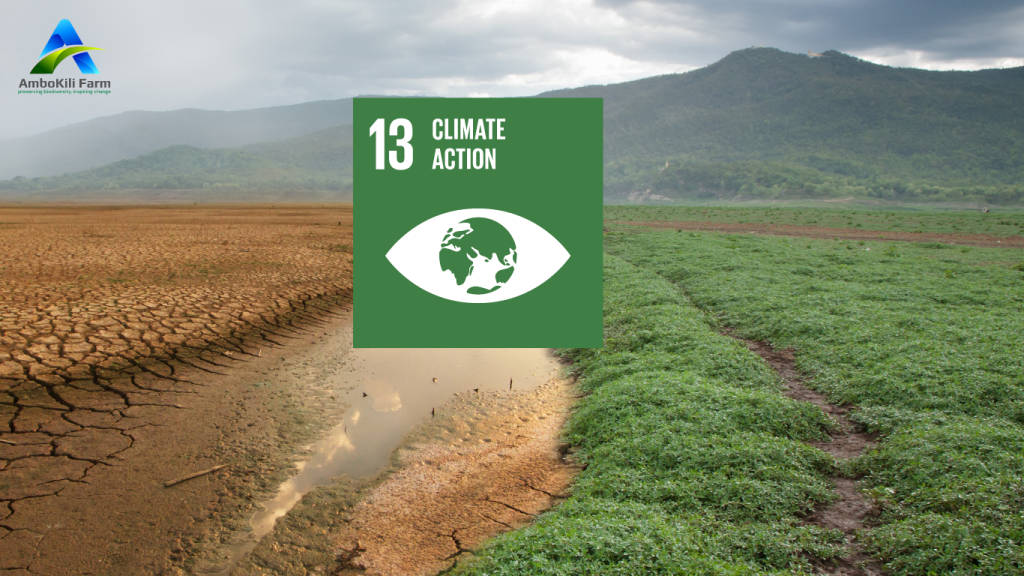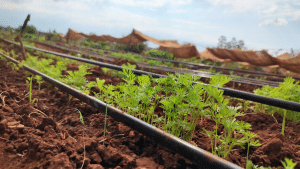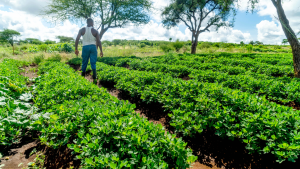
In the semi-arid region of Kimana, Kajiado County, Kenya, the effects of climate change are starkly evident.
There are erratic rainfall patterns, alternating between prolonged droughts and intense rainfall events. This has led to soil erosion, flooding and loss of biodiversity. Moreover, the decline in water sources, including rivers, streams, and natural springs, has exacerbated water scarcity for domestic and irrigation purposes.
The increased frequency and severity of extreme weather events, such as high temperatures reaching 31.5°C and heavy rainfall, contribute to crop failures, livestock losses, and food insecurity.
As a result, agriculture and pastoralism, the main income activities in Kimana, have been significantly impacted. Pastoralists struggle with dwindling forage availability and water scarcity, while erratic rainfall and rising temperatures disrupt planting seasons, reduce crop yields, and increase pest and disease prevalence.
Rising temperatures, erratic rainfall patterns, and dwindling water sources have left communities grappling with uncertainty and hardship. However, amidst these challenges, Ambokili Farm stands as a beacon of hope, leading the charge in climate action through innovative agricultural practices and environmental stewardship.
Ambokili Farm's Approach to Climate Action:
Recognizing the urgent need for action, Ambokili Farm has embraced Natural Climate Solutions (NCS) as a cornerstone of its operations. Through afforestation, reforestation, and sustainable agriculture, the farm is not only mitigating its carbon footprint but also restoring vital ecosystems and building resilience against climate change impacts.
Afforestation and Reforestation:
Ambokili Farm understands the critical role that trees play in combating climate change. By planting over 500 trees of different species and restoring over 9 acres of degraded land, the farm is sequestering carbon dioxide from the atmosphere, mitigating the effects of greenhouse gas emissions, and enhancing biodiversity. These efforts not only contribute to climate resilience but also provide valuable habitat for wildlife and promote soil conservation.
Sustainable Agriculture:
- Reduced Greenhouse Gas Emissions:
No Synthetic Fertilisers: Ambokili Farm is an organic farm hence, we do not use synthetic fertilisers, which are a major source of nitrous oxide emissions (a potent greenhouse gas).
Composting: Composting naturally produces nutrient-rich fertiliser without the energy-intensive processes involved in industrial fertiliser production.
- Carbon Sequestration:
Soil Health: We build soil health through practices like cover cropping, crop rotation, and no tillage. Healthy soils have a much greater capacity to capture and store carbon from the atmosphere, thus mitigating climate change.
- Increased Biodiversity:
Biodiversity: By creating diverse ecosystems with various crops and plant species, making them more resistant to the extreme weather patterns associated with climate change (e.g., droughts, floods), we’re able to build and restore biodiversity.
- Energy Efficiency
Reduced Reliance on Fossil Fuels: We generally require less energy-intensive machinery and transportation, further reducing greenhouse gas emissions.
- Sustainable Resource Management
Water Conservation: By improving soil water retention through no tillage, cover cropping and crop rotation and employing efficient irrigation techniques that reduce water wastage, we’re able to conserve the little water that we have.
- Reduced Chemical Pollution: By maintaining organic integrity, Ambokili Farm needs not usesynthetic pesticides and herbicides. This protects waterways and prevents the release of harmful chemicals that contribute to climate change.
Conclusion
While it’s not a silver bullet, organic practices play an important role in mitigating climate change and promoting long-term environmental sustainability.







